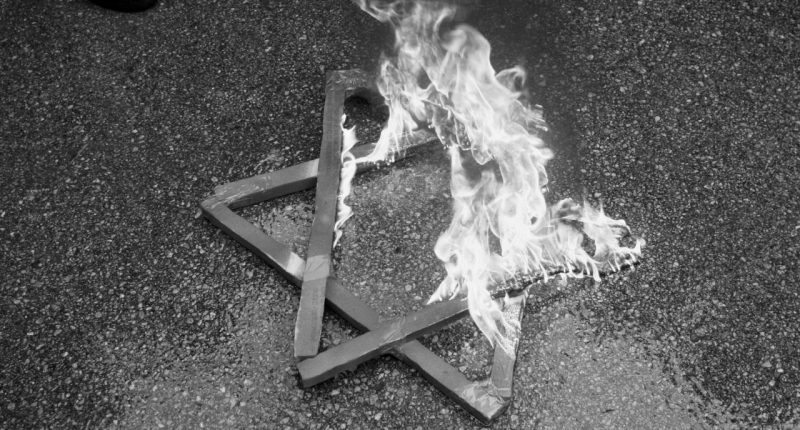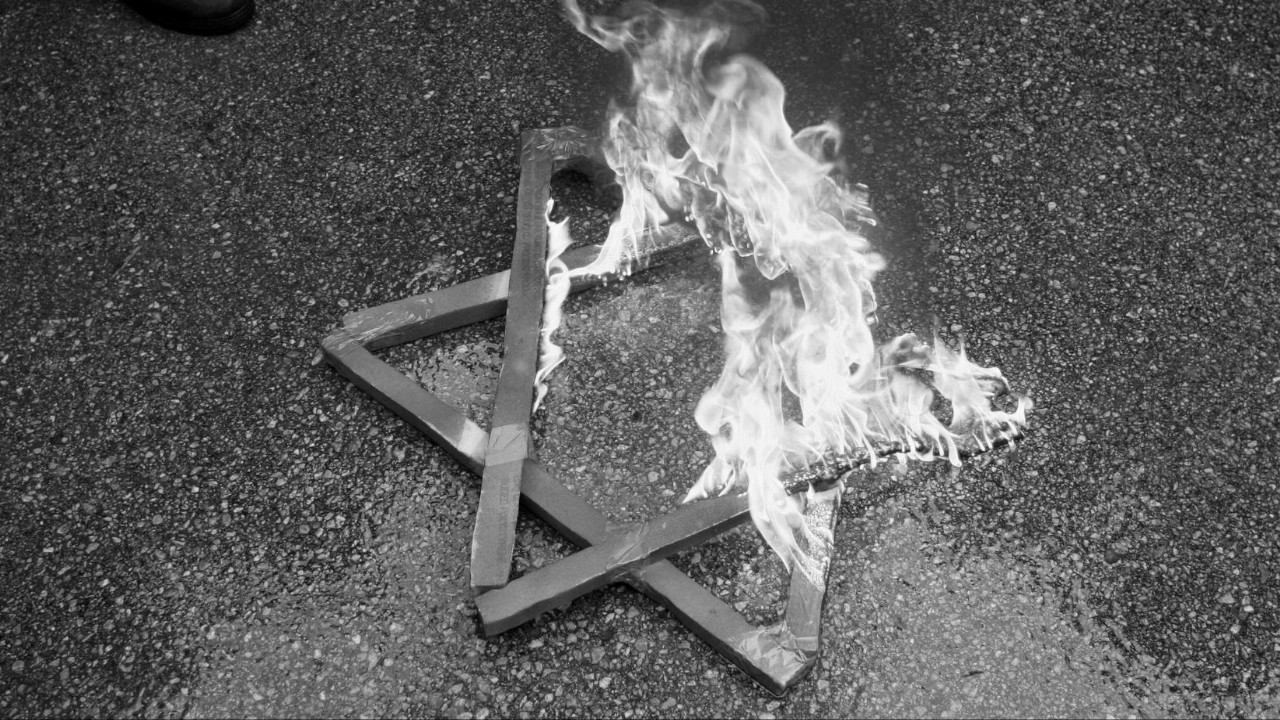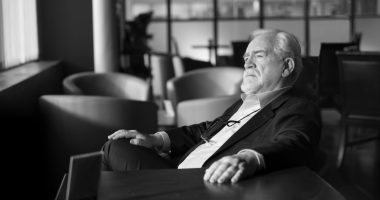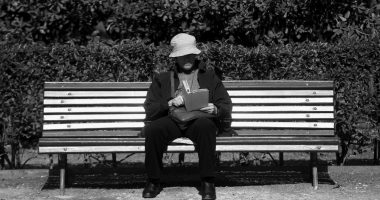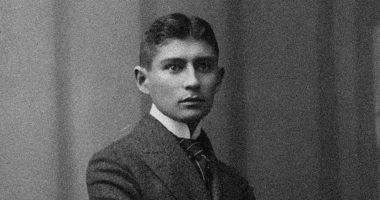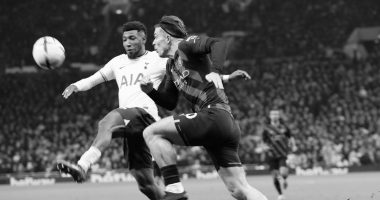You need go no further than the inner-city Sydney Jewish Museum to fathom the horror committed under the Nazi regime nearly 80 years ago.
Then there is the seminal Yad Vashem Holocaust remembrance centre in Jerusalem, with its confronting and harrowing records, documents, testimonies and photographs affirming the pure evil of Nazism.
Both museums have been aptly invoked since NSW Premier Dominic Perrottet wished he hadn’t worn a Nazi uniform to his 21st birthday bash. He shares the opprobrium with Prince Harry, who was 20 when he dressed up in Nazi gear. Both have apologised, and as difficult as it is to understand why two educated young men ventured there, it’s no easier to digest the sentiment that we’ve become too woke, too humourless, too sensitive to the errors of people’s ways 20 years ago. Nothing changes the fact that more than six million Jews were murdered by the Nazis.
If anything positive has come from these so-called follies, it is the gaze that has settled on pervasive, rising antisemitism and its attendant casualisation and normalisation, particularly as the world marked International Holocaust Remembrance Day on Friday. But how to stop new generations being groomed in racist hate?
This month, just before the Perrottet fiasco, The Australian Jewish News condemned an auction in Queensland of Nazi memorabilia that included “Approx. 500 Jewish Atrocity Photos — Caution Very Disturbing”, which sold for a hefty $25,000.
The photos originated from a now elderly German man whose father was in the SS. The vendor left Germany when he was 19 and the Nazi items were left to him on his father’s death.
The Gold Coast-based Danielle Elizabeth Auctions holds “militaria” auctions about three times a year and Nazi items from deceased estates are in demand, particularly by US buyers. Included in the auction were Nazi badges, jewellery, flags, coins, a rare book signed by Adolf Hitler, and photos of Third Reich officers.
Many pieces originate from SS officers whose families settled in Australia after the war, some from Allied war veterans who brought back Nazi tokens. After NSW and Victoria last year outlawed public displays of Nazi symbols, prices reached a premium among the few auctioneers still selling them. Western Australia will prohibit unauthorised displays of the symbols while Queensland and Tasmania have announced they will follow suit.
The swastika, a sacred Sanskrit symbol meaning well-being, was appropriated by the Nazi party from the ancient Buddhist, Hindu and Jain faiths. It will not be banned by those communities, but the stigma attached to it has triggered misunderstandings. Synonymous with fascism and hatred of Jews, the German Hakenkreuz, or hooked cross, remains a visceral symbol of fear and oppression for Jews, forever linked to Hitler’s atrocities.
The director of the Gold Coast auction house, Dustin Sweeny, blames Jews, left-wing organisations and cancel culture for denouncing sales of Nazi hate symbols, and believes he’s doing nothing morally wrong.
“My grandfather fought in World War II for freedom of speech and beliefs, not the cancel culture where you can’t sell something from the Third Reich,” he said.
Depicting the symbols as “historical artefacts”, Sweeny rails against the idea of junking the memorabilia.
“If they (Jews) want them out of circulation, why don’t they buy them?” A naïve notion, at best.
Darren Bark, CEO of the NSW Jewish Board of Deputies, has condemned profiteering from the death and destruction of millions of innocent people, and urged the donation of the Nazi pieces to the Sydney Jewish Museum.
“The disturbing photos and symbols are a chilling reminder of a horrific period in history. They belong in museums as reminders of the horrors of the Holocaust, not flogged off to the highest bidder,” he said.
What influence does circumstance play in injecting vilification and antisemitic ideology into the community?
Antisemitism is frequently fuelled by ignorance about the Holocaust, with 24 per cent of Australian adults having little or no knowledge of it, according to the Gandel Holocaust Australia survey. Although mandatory as part of the national history curriculum in schools, teachers overall have only a perfunctory knowledge of the Holocaust, or spout inaccuracies.
The resulting ignorance is stoking increased religious bullying in the school yard and on social media, while vile, stereotypical anti-Holocaust jokes are par for the course, according to research by University of Sydney professor emeritus Suzanne Rutland from the Department of Hebrew, Biblical & Jewish Studies.
It follows that a broader cultural problem is playing out in society and on the internet, where bigotry and hate are platforms for recruitment to neo-Nazi groups, whose global activity and propaganda-sharing has surged in the past five years.
The rise of disturbing events across Australia includes recent letterbox drops of pamphlets in Queensland from the National Socialist Network, urging residents to “join your local Nazis”. Following that, on January 19, Queensland counter-terror police charged three men over the displaying of neo-Nazi material, after conducting raids across south-east Queensland, The Guardian reported.
The weaponising of racist slogans and rhetoric has generated calls for Australian leaders to condemn antisemitic attacks, while Jewish leaders unequivocally see education as the key.
A report by the Executive Council of Australian Jewry (ECAJ) found there were 478 reported antisemitic incidents across Australia between 2021 and 2022, a 41.9 per cent increase over the previous two years. That includes 447 incidents in 2021, a 35 per cent increase over 2020 — the highest on record.
NSW experienced the highest reported number of antisemitic incidents at 219 over the past two years, followed by 170 in Victoria. But many incidents aren’t reported for fear of reprisals and many don’t constitute criminal offences.
Of particular concern is the spike in antisemitism globally. Europe seems to be in the throes of a far-right shift, with Italy last year securing its most far-right government since 1945.
In the US, antisemitic conspiracy theories and tropes have almost doubled since 2019, a recent study by the US-based Anti-Defamation League found. A massive 85 per cent of Americans believed at least one anti-Jewish trope, compared with 61 per cent in 2019, adding that 20 per cent of Americans believed six or more anti-Jewish tropes, compared with 11 per cent in 2019 — the highest level measured in decades.
The toxic cocktail of antisemitism has emerged from the far-right, the far-left and Muslim extremists, Rutland says. Trumpism, engendering the former president’s incitement of neo-Nazis and white supremacists, equally, has fomented lingering hatred.
“It’s a perfect storm. You’ve got polarising and populist agendas across the world, a rise in misinformation that conflates a range of different aspects, whether its religion, politics or national identity, and you also have vulnerable people due to the pandemic and economic anxieties,” Bark said.
“Most have been interacting online so the rise in disinformation allows resentment, and that’s when we see Nazi ideologies and extremist conspiracies become populist.”
Antisemitism has undergone several evolutions — initially religion- and race-based, but now ideological and political. Bringing establishment credibility to the margins, the far-left, with its extreme anti-Israel narrative, champions the global Boycott, Divestment and Sanctions (BDS) campaign, which last January boycotted a $20,000 sponsorship from the Israeli embassy to the Sydney Festival.
BDS, backed by proscribed terror groups, urged artists to “respect Palestinian human rights and drop its toxic partnership with apartheid Israel.”
It has a sinister effect, using Israel to marginalise Jewish populations — the same tactic used in Nazi Germany, Bark notes.
In 2021, Australia adopted the International Holocaust Remembrance Alliance’s (IHRA) definition of antisemitism as an educational tool for parliaments, universities, and community organisations. It was immediately controversial for the degree to which criticism of Israel can be labelled antisemitic, but it prompts the argument that being anti-Israel is not necessarily being anti-Jewish or antisemitic.
Not unexpectedly, the Australia Palestine Advocacy Network said the IHRA definition caused harm to academic freedom and was being “increasingly weaponised against pro-Palestinian initiatives and to silence Palestinian voices,” The Guardian reported.
The claim that it prohibits legitimate criticism of Israel has been condemned by the ECAJ, which has accused anti-Israel activists of undermining the fight against antisemitism.
And yet, antisemitism often comes out of left field. Imagine a woman — the daughter of Holocaust survivors — wearing a Star of David as she shopped in Coles, only to be confronted by a man offering a Nazi salute and “Heil Hitler”, as reported in The Australian Jewish News.
And imagine my surprise when an old former colleague commented on one of my articles for The Australian, his poison pen dripping with antisemitism in a gossip rag — proof that anyone can be a spineless dullard.
Rutland perhaps sums up the salient point: “One would have hoped that after the Shoah, antisemitism would be behind us.”
Deborah Cassrels was The Australian’s first Bali-based correspondent and has written extensively on refugees, politics, terrorism, crime and social justice. She was nominated for a Walkley Award in 2016 for her work on terrorism in Indonesia. Her first book, “Gods and Demons”, a memoir about her journalism in Indonesia, was published in 2020.
Stay up to date on all the latest commentary, analysis and opinion pieces from Art of the Essay by following on Twitter, Instagram, Facebook and LinkedIn.
